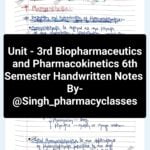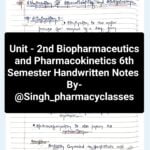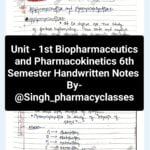Pharmaceutical Organic Chemistry is a specialized field of chemistry that combines organic chemistry, structural and chemical biology, and pharmacology to produce pharmaceutical drugs³⁴. Here are some key aspects:
1. **Organic Molecules and Compounds**: This field deals with the study of organic molecules and compounds, which are the building blocks of many pharmaceutical drugs³.
2. **Medicinal Chemistry**: One of the most important applications of organic chemistry involves the design and synthesis of pharmaceutical agents, a topic defined as medicinal chemistry².
3. **Tautomerism**: Tautomerism is a form of isomerism where two isomers are interconverted by the movement of an atom or a group. The most common form is ‘keto-enol’ tautomerism¹.
4. **Carbocation Rearrangement**: The bonding electrons of a carbocation may shift between adjacent atoms to form a more stable carbocation. This is a key concept in organic reactions¹.
5. **Classification of Organic Compounds**: Organic compounds can be classified into acyclic or open chain compounds, alicyclic or closed chain or ring compounds, and aromatic compounds¹.
6. **Drug Development**: The process of drug development involves the identification of a drug target, drug testing and bioassays, identification of lead compounds, structure-activity relationships, and pharmacopores, and drug optimization².
This is a broad overview of Pharmaceutical Organic Chemistry. Each of these topics is a vast field of study in itself. If you have specific questions about any of these topics, feel free to ask!







